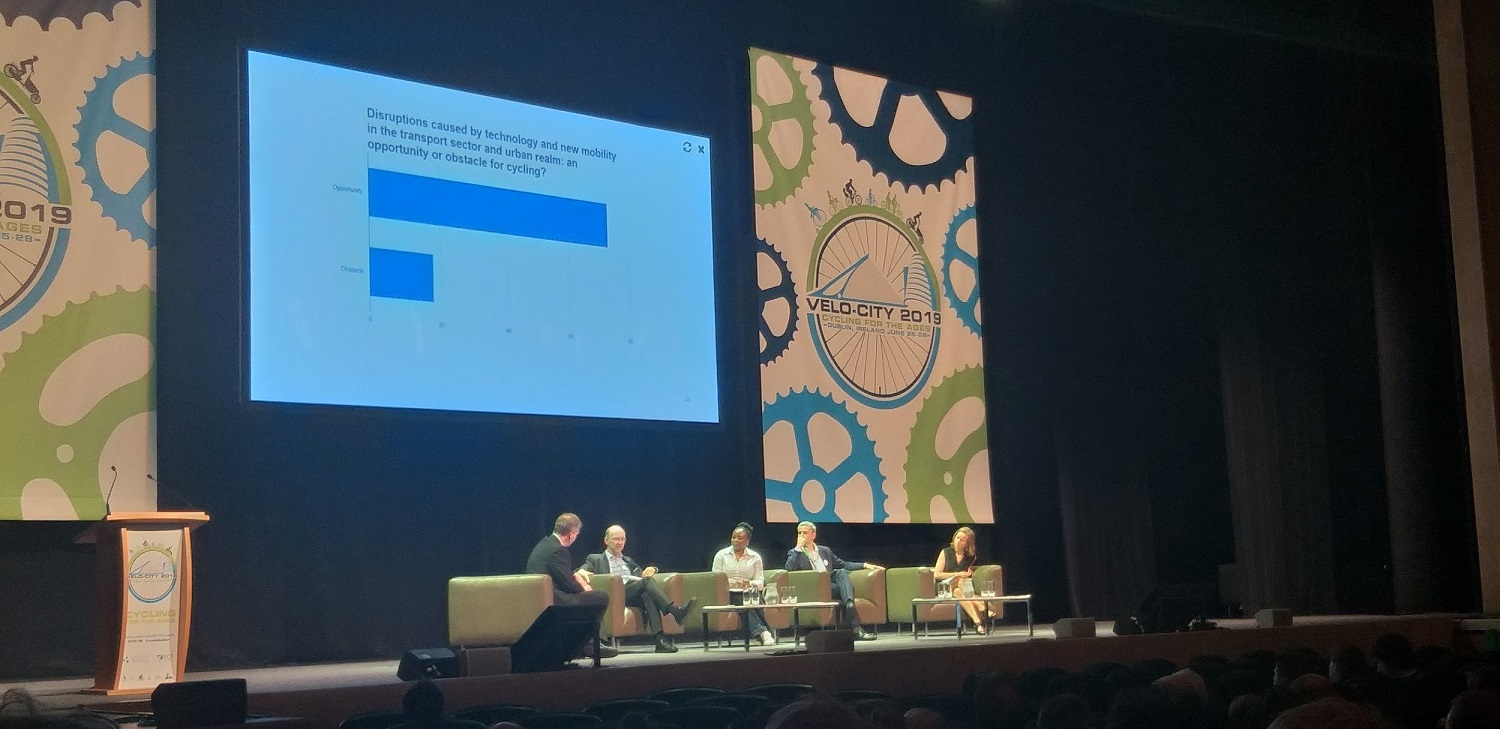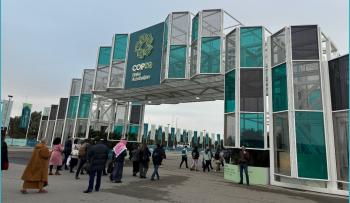
Policy - is it catching up with the Tech Development?
Cycling technologies are often driving technological innovation in the entire mobility sector, and can be a tremendous contribution to sustainability goals in cities public policies. The first day of Velo-city 2019 Dublin concluded with a stimulating discussion on how can regulations cope with the disruptions caused by the new mobility options that keep suddenly appearing in the transport sector.
Policies and legislation require much more time than product deployment. E-bikes, free-floating bike sharing and e-scooters are just few examples of local (and national) authorities struggling to keep up with the pace of disruptive devices in the mobility space. How can legislation aid or obstruct cycling development?
Ryan Rzepecki, CEO of JUMP by Uber, opened the plenary giving an overview of the challenges disruptive mobility options and business models can bring to cities. Representatives of different levels of governance (local, regional, national governments, and from the European level) joined him in the debate looking into how to accommodate innovation while preserving orderly streets and sustainable urban environments.
Oluwaseun Sonoiki, Corporate & Legal Secretary at Lagos Metropolitan Area Transport Authority, stressed the need for proper research to fully understand the disruption and its consequences: “Trying to understand mobility patterns based on data is essential for creating demographics and shape infrastructure. Public authorities need to be aware of how technology works”.
Karen Vancluysen, Secretary General of the Polis network, was cautious on the topic: “I see a lot of potential but I also see the major challenges in this area. The key is in the dialogue, we need to find new ways of cooperation. Cities are in charge of urban space and need to be empowered by other levels of governance to take the necessary measures to cope with this fast evolving environment”.
Matthew Baldwin, Deputy Director General at DG MOVE of the European Commission, gave a wider perspective to the whole conversation on stage: “The end goal is safe, clean, accessible mobility that does not undermine our sustainability objectives. I find myself pathetically dependent on data as a regulator. Regulation is not the end goal per se”.
Christophe Nadjdovski, Deputy Mayor of Paris and President of the European Cyclists' Federation, showed his concerns as a decision-maker at the local level, specifically speaking about dockcless sharing systems and their widespread arrival in Paris. “Free floating bikes and e-scooters can help shift people from their cars onto more sustainable vehicles, but too often cause a problem of occupation of public space. We need a frame. We need a national regulation”.
Closing the session, Ryan Rzepecki gave an empowering quote: “We have the key people from the public, private and advocacy sectors in this room. The opportunity to improve cycling and cities is bigger than ever. Let's work together”.
Network/Project Involved:
Contact the author
Recent news!
Upcoming events
Contact Us
Avenue des Arts, 7-8
Postal address: Rue de la Charité, 22
1210 Brussels, Belgium









